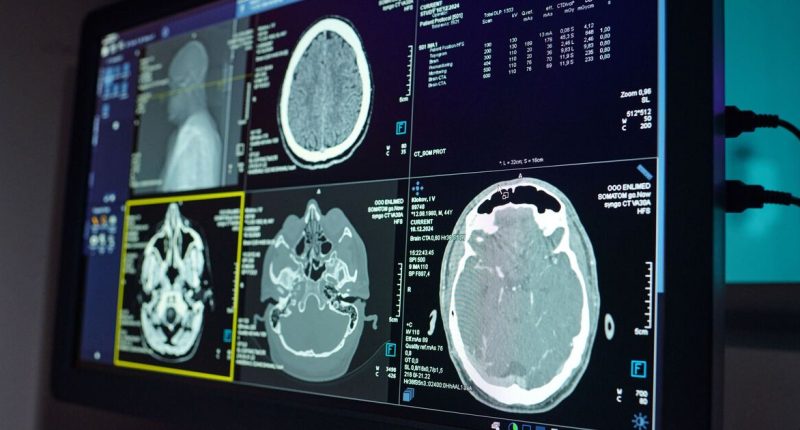Share this @internewscast.com
Social isolation has long been regarded as a key sign of Alzheimer’s disease, but a new investigation of half a million Brits has now called this assumption into question.
Conducted by the University of California, the study explored UK Biobank data to examine the links between genetics, social habits, and dementia in adults averaging 56 years old. Notably, the results revealed no substantial differences in loneliness, friendship quality, and emotional support between high-risk and low-risk participants.
However, people with a greater genetic risk for Alzheimer’s engaged in considerably more social activities and maintained happier family connections, reporting much lower levels of isolation. Consequently, scientists theorise that Alzheimer’s might encourage increased sociability in its initial stages instead of reducing it.
Associate Professor Ashwin Kotwal, a co-senior author of the study, explained: “Their social lives may even expand. We don’t know for sure if they are engaging more with others, or if those around them are noticing subtle changes and giving them more support.”
Find out about the symptoms you need to watch out for and get health advice with our free health newsletter from the Daily Express
Dementia serves as an umbrella term for various conditions, including Alzheimer’s disease, characterised by a progressive decline in brain function. According to the NHS, more than 944,000 people in the UK are currently living with dementia, which affects one in every 11 people aged 65 and older.
At present, there is no cure for Alzheimer’s disease. However, treatments exist that can alleviate symptoms such as confusion, forgetfulness, and communication difficulties. Although additional research is required to confirm the link between dementia and social behaviour, researchers still emphasise the importance of enhancing social interactions as a potential means of reducing risk.
This is mainly because social connectedness is thought to enhance cognitive reserve, the brain’s ability to maintain normal function even as it ages or in the presence of dementia. Additionally, earlier studies suggest that up to 45% of dementia cases might be preventable through further lifestyle modifications.
In 2024, researchers at Oxford University found that pollution, alcohol intake, and fatigue contribute to an increased risk of dementia, based on their analysis of 40,000 brain scans. Type 2 diabetes was claimed to be one of the worst risk factors, too, potentially leading to ‘degeneration’ of a weak spot in the brain.
Professor Gwenaëlle Douaud, who led the study, said previously: “We know that a constellation of brain regions degenerates earlier in ageing, and in this new study we have shown that these specific parts of the brain are most vulnerable to diabetes, traffic-related air pollution − increasingly a major player in dementia − and alcohol, of all the common risk factors for dementia.
“We have found that several variations in the genome influence this brain network, and they are implicated in cardiovascular deaths, schizophrenia, Alzheimer’s and Parkinson’s diseases, as well as with the two antigens of a little-known blood group, the elusive XG antigen system, which was an entirely new and unexpected finding.”
The Health and Wellness Club newsletter
Potential symptoms of dementia
Symptoms of dementia can vary by type. In the early stages, typical signs may include:
- Finding it hard to carry out familiar daily tasks, such as getting confused over the correct change when shopping
- Memory loss
- Struggling to follow a conversation or find the right word
- Being confused about time and place
- Mood changes
- Difficulty concentrating
Anyone who thinks they may have dementia symptoms is strongly encouraged to consult their GP. Current NHS guidance states: “Although there is no cure for dementia at the moment, an early diagnosis means its progress can be slowed down in some cases, so the person may be able to maintain their mental function for longer.
“A diagnosis helps people with dementia get the right treatment and support. It can also help them, and the people close to them, to prepare for the future.”
For more information, head to the NHS website.











